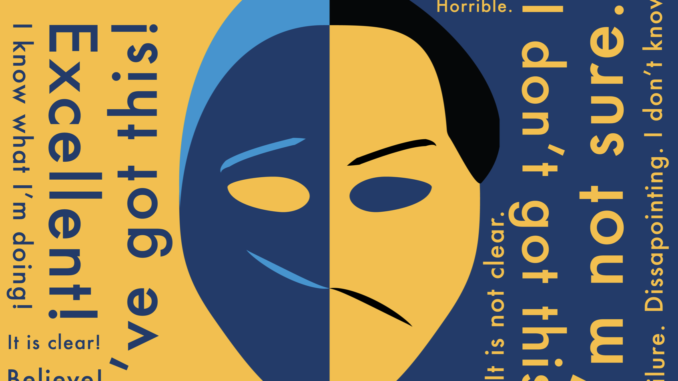
By Betsy Carreno
Imposter syndrome is defined as the feeling of not deserving an award, position, recognition, or success in a certain part of your life.
This emotion frequently involves self-doubt even if others talk about how successful you are. According to UCLA Health, imposter syndrome is common with medical students as approximately 60% of them have felt this specific emotion.
Athenea Espana, a pre-dental sophomore, discussed how imposter syndrome affects students’ mental health.
“[It] feels like you are undercover,” she said. “If you get caught, you feel like fake. People might call you smart, but you feel like you are just trying to survive through school.”
Angelica Carrillo, a sophomore majoring in psychology, opened up about her own experience with this emotion.
“As a student and woman, it can sometimes be quite unsettling,” Carrillo said. “[It] led to feelings of anxiety and self-doubt. [The syndrome also] makes it challenging to fully embrace my achievements or feel confident in my capabilities.”
While there are various ways to cope with imposter syndrome, it is always a good idea to seek professional help.
Espana said she uses her Catholic faith to help her cope with her emotions.
“[This] can be very difficult and different for everyone,” she said. “As a Catholic, I enjoy telling myself that this is just another hurdle. God is testing me and my abilities to help make a better version of myself.”
She said she thinks students should break out of their comfort zones to feel more confident.
“It is immensely important to try new activities or hobbies,” she explained. “We sometimes surprise ourselves with our own capabilities.”
Carrillo recommends offering workshops on imposter syndrome to help raise awareness.
“Creating an inclusive and supportive campus culture where students feel encouraged and valued to seek help when needed is essential,” said Carrillo. “[You should] embrace a positive mindset and acknowledge that you will never be alone through the process of overcoming this syndrome.”



